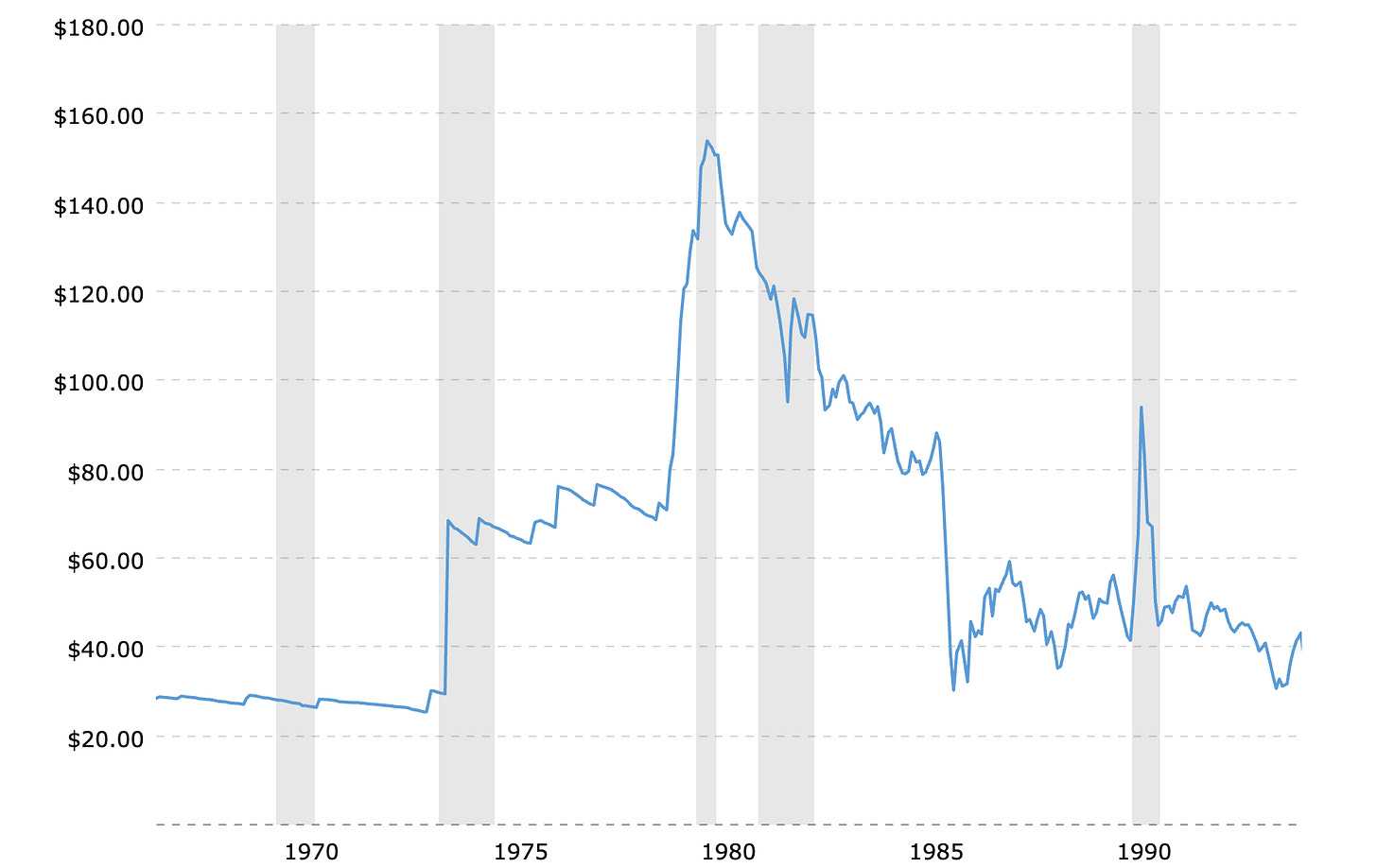Time, Chance and Jimmy Carter
He was a very good man, but an unlucky president
Jimmy Carter was a very good man — something that seems especially poignant to think about as we enter an age of kakistocracy, in which being a terrible person seems to be a necessary qualification for high office. And he was surely the best ex-president we’ve ever had. But his presidency itself is widely regarded as a failure.
I don’t think that’s fair. Carter wasn’t a Harry Truman, a great president whose greatness only came to be recognized many years later. But was he a bad president? Not in any way I can see. He was just a victim of time and chance:
I returned and saw under the sun, that the race is not to the swift, nor the battle to the strong, neither yet bread to the wise, nor yet riches to men of understanding, nor yet favor to men of skill; but time and chance happeneth to them all.
The truth is that luck plays a much bigger role in politics than we like to think.
The late 1970s would have been a difficult time for the economy no matter who was president. For one thing, the great productivity boom that doubled U.S. living standards over the generation that followed World War II had sputtered out, for reasons we still don’t fully understand:
Then there were the oil shocks, triggered by turmoil in the Middle East; here’s the inflation adjusted price of oil:
These oil shocks had a much bigger effect on inflation than comparable shocks would today. The fracking revolution was still many years away, so America was highly dependent on imported oil, and in general the economy was far more oil-intensive than it is now: America consumed as much oil in 1976 as it does today, even though the economy was only about a third as big.
On top of all that, persistent inflation before Carter took office — inflation that was in part due to irresponsible policy under Richard Nixon — had made the economy vulnerable to wage-price spirals. Many labor contracts had cost-of-living allowances that caused oil shocks to feed into labor costs; more generally, expectations of future inflation had become unanchored:
So inflation exploded, and Carter lost the election with a sense that his management of the economy had failed:
Did Reagan fix things? Well, there certainly wasn’t any Reagan economic miracle. Inflation did come back down, but at enormous cost: the disinflation of the 1980s required a huge surge in unemployment, of the kind that people like Larry Summers wrongly predicted would be needed to bring inflation down from its recent peak in 2022. Productivity growth remained slow, and real wages declined through most of Reagan’s presidency:
But Reagan lucked out on his timing. The really bad stuff happened early in his presidency, and things were improving by the time he ran for reelection. Improving, not good — both unemployment and inflation were substantially worse during “morning in America” than they were at the time of the 2024 election. But Reagan benefited from the sense that the worst was over, and his reputation has been, um, inflated by decades of right-wing hagiography.
Luck, then, plays a big role in politics. It hasn’t always favored Republicans. Bill Clinton won thanks to a sluggish recovery that wasn’t obviously Bush the Elder’s fault; I’m not at all sure that Obama would have won if the 2008 financial crisis had been delayed a few months.
But luck certainly favored Trump this year. By any reasonable assessment, the outgoing administration did a very good job of managing the economy; U.S. growth has been the envy of the world, while the 2021-22 burst of inflation was clearly driven by pandemic-related disruptions that caused similar inflation across the advanced world. But voters blamed Biden for higher prices (while giving him no credit for higher wages.)
And the result, as I said, is that some very bad people — I don’t mean people with bad policy ideas, although that too, but awful human beings — are about to take power.
So let’s honor Jimmy Carter, who was everything these people aren’t.
MUSICAL CODA
No snark this time







"So let’s honor Jimmy Carter, who was everything these people aren’t."
Jimmy Carter’s presidency was harshly judged by an undiscerning, impatient electorate and a biased pundit class to be far from the best president America has had, but now in the fullness of time we have come to realize that he was the finest, most honest and most decent human being ever to serve in that role. He resisted the temptation to start a war over a hostage crisis that was destined to be resolved without loss of life. He brought the Federal Budget into balance. He appointed the Federal Reserve Chairman who would go on to defeat inflation, although the work required would outlive his presidency and the economic triumph would be ascribed to his successor.
RIP, James Earl Carter.